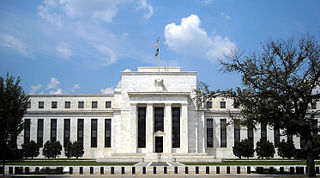 W
WThe Board of Governors of the Federal Reserve System, commonly known as the Federal Reserve Board, is the main governing body of the Federal Reserve System. It is charged with overseeing the Federal Reserve Banks and with helping implement the monetary policy of the United States. Governors are appointed by the president of the United States and confirmed by the Senate for staggered 14-year terms.
 W
WWayne D. Angell is an economist and was Governor of the Federal Reserve Board.
 W
WSusan Schmidt Bies was born in Buffalo, New York, and received a B.S. in education from Buffalo State College in 1967 and an M.A. (1968) and a Ph.D. (1972), both in economics, from Northwestern University, Bies was a member of the board of governors of the Federal Reserve System.
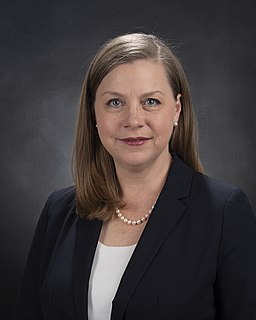 W
WMichelle White "Miki" Bowman is an American attorney and a Governor on the Federal Reserve's board. She is the first person to fill the community bank seat on the board, a seat created by a 2015 law.
 W
WLael Brainard is an American economist who has served on the Federal Reserve Board of Governors since 2014. She previously served as the United States Under Secretary of the Treasury for International Affairs from 2010 to 2013.
 W
WAndrew Felton Brimmer was a noted United States economist, academic, and business leader who was the first African American to have served as a governor of the Federal Reserve System.
 W
WLawrence Clayton was a Governor of the United States Federal Reserve System from 1947 until his death. Served as assistant to Mariner Eccles for many years.
 W
WJ. Dewey Daane was an American economist and the Frank K. Houston Professor of Finance, Emeritus and Senior Advisor, Financial Markets Research Center at Vanderbilt University. He was previously a member of the Board of Governors of the Federal Reserve from 1963 through 1974. Daane received an M.P.A. and D.P.A. from Harvard University. He died on January 3, 2017, at the age of 98.
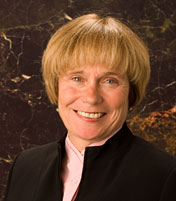 W
WElizabeth "Betsy" Ashburn Duke is an American bank executive, most notable for being a member of the Board of Governors of the Federal Reserve System of the United States from 2008 through 2013. She was confirmed by the Senate June 27, 2008 to fill an unexpired term ending January 31, 2012. She was the seventh woman to be appointed to the board. In July 2013 she announced her resignation from the board.
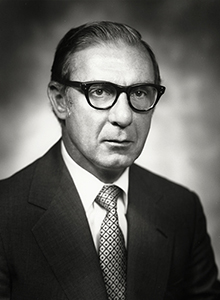 W
WLyle Elden Gramley was an American economist. Involved in economic policymaking during the Carter and Reagan presidencies, he served on the Council of Economic Advisers from 1977 to 1980, and on the Federal Reserve Board of Governors from 1980 to 1985.
 W
WEdward M. Gramlich was a professor of economics at the University of Michigan and a former member of the Board of Governors of the Federal Reserve.
 W
WHeinz Robert Heller was born January 8, 1940 in Cologne, Germany. He has served as a Governor of the Federal Reserve System and as President of VISA U.S.A. Inc.
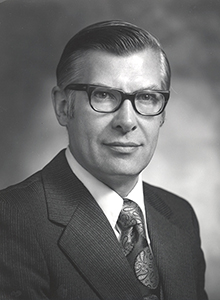 W
WRobert Carl Holland was an American economist.
 W
WRandall S. Kroszner is a former member of the Board of Governors of the Federal Reserve System of the United States. He was chairman of its Committee on Supervision and Regulation of Banking Institutions during the global financial crisis. He took office on March 1, 2006 to fill an unexpired term, and stepped down on January 21, 2009. Kroszner has been professor of economics at the University of Chicago since the 1990s, with various leaves, and named Norman R. Bobins Professor of Economics at the University of Chicago Booth School of Business in 2009, and serves as a senior advisor for Patomak Partners.
 W
WJohn P. LaWare was a banker and a former Governor of the Federal Reserve Board.
 W
WLawrence B. Lindsey is an American economist. He was director of the National Economic Council (2001–2002), and the assistant to the president on economic policy for the U.S. President George W. Bush. He played a leading role in formulating President Bush's $1.35 trillion tax cut plan, convincing candidate Bush that he needed an "insurance policy" against an economic turndown. He left the White House in December 2002 and was replaced by Stephen Friedman after a dispute over the projected cost of the Iraq War. Lindsey estimated the cost of the Iraq War could reach $200 billion, while Defense Secretary Donald Rumsfeld estimated that it would cost less than $50 billion.
 W
WSherman Joseph Maisel was an American economist who served on the board of governors of the Federal Reserve System. Research on mortgage policy conducted by Maisel led to the expansion of the roles played by Fannie Mae and Ginnie Mae in encouraging the broader availability of loans to homeowners.
 W
WLaurence Meyer is an economist and was a United States Federal Reserve System governor from June 1996 to January 2002.
 W
WAdolph Caspar Miller was an American government official and university professor. He was one of the original Governors of the Federal Reserve System, appointed in 1914, and served in that capacity for 22 years. He was a notable benefactor of the University of California, Berkeley, of which he was a graduate.
 W
WFrederic Stanley "Rick" Mishkin is an American economist and Alfred Lerner professor of Banking and Financial Institutions at the Graduate School of Business, Columbia University. He was a member of the Board of Governors of the Federal Reserve System from 2006 to 2008.
 W
WMark Walter Olson was an American economist and politician who was a member of the Board of Governors of the U.S. Federal Reserve from 2001 to 2006. Filling an unexpired term to end on January 31, 2010, he resigned on June 21, 2006 in order to run the Public Company Accounting Oversight Board.
 W
WSusan Meredith Phillips is an American economist who served as a Governor of the Federal Reserve Board and Dean of the George Washington University School of Business.
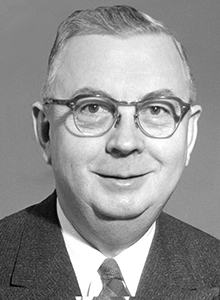 W
WOliver S. Powell was a member of the Board of Governors of the Federal Reserve System from September 1, 1949, until June 30, 1952.
 W
WSarah Bloom Raskin is an American attorney and regulator, who was formerly a member of the Board of Governors of the Federal Reserve System and a former United States Deputy Secretary of the Treasury. Previously, she served as Maryland Commissioner of Financial Regulation and as a Managing Director at the Promontory Financial Group. She is a Rubenstein Fellow at Duke University.
 W
WEmmett John Rice was a governor of the Federal Reserve System, a Cornell University economics professor, an expert in the monetary systems of developing countries, and the father of President Barack Obama's National Security Advisor, Susan E. Rice.
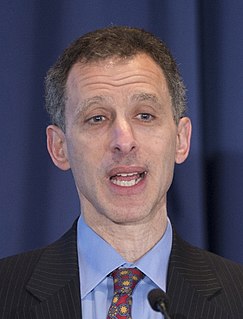 W
WJeremy Chaim Stein an American macroeconomist. He is the Moise Y. Safra Professor of Economics at Harvard University, the chair of the Department of Economics at Harvard, and an investment industry consultant. Stein was president of the American Finance Association in 2008, and a member of the Board of Governors of the U.S. Federal Reserve from 2012 to 2014.
 W
WDaniel K. Tarullo is a former member of the Board of Governors of the United States Federal Reserve Board since January 28, 2009, in which capacity he served as the chairman of the Federal Financial Institutions Examination Council (FFIEC). In February 2017, Tarullo announced his intention to resign from the Board of Governors in early April 2017.
 W
WNancy Hays Teeters was the first woman to serve on the Federal Reserve Board of Governors. Appointed by President Jimmy Carter, she served from 1978–1984. She was known for her public statements in which she dissented from the mainstream opinion of the Board and Chairman Paul Volcker.
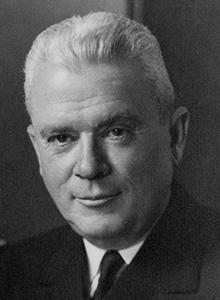 W
WJames Kimble Vardaman Jr. (1894–1972) was an American lawyer from Mississippi, a US Navy captain during World War II, and political aide to President Harry S. Truman. He had worked as counsel for banks in Missouri before the war, and was appointed as a Governor of the Federal Reserve System, serving from 1946 to 1958.
 W
WChristopher J. Waller is an American economist who is a member of the Federal Reserve Board of Governors. Waller was nominated to and confirmed as a member of the Board of Governors in December 2020. He was sworn-in via video conference on December 18 for a term ending January 31, 2030.
 W
WKevin Maxwell Warsh, is an American academic, financier, and former government official. During and in the aftermath of the 2008 financial crisis, Warsh was a governor of the Federal Reserve System, and acted as the central bank's primary liaison to Wall Street and served as the Federal Reserve's representative to the Group of Twenty (G-20) and as the Board's emissary to the emerging and advanced economies in Asia. Prior, Warsh served as Special Assistant to the President for Economic Policy and Executive Secretary of the White House National Economic Council. He is the Shepard Family Distinguished Visiting Fellow in Economics at Stanford University's Hoover Institution, a scholar and lecturer at the Stanford Graduate School of Business, a member of the Group of Thirty, a member of the Panel of Economic Advisers of the Congressional Budget Office, and a former steering committee member of the Bilderberg Group. He has conducted research in the field of economics and finance, and has advised several private and public companies.